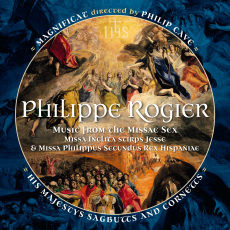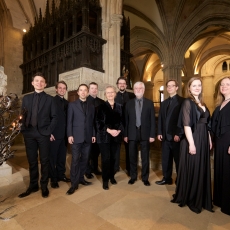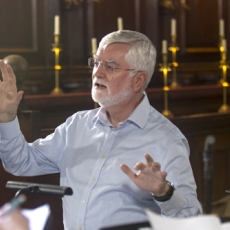Magnificat - Rogier: Missae Sex - Fanfare
Philippe Rogier (c1561-96) was one of many Franco-Flemish musicians who served the royal court of Spain in the 16th Century. He entered the court in 1572 as a chorister and would have been taught by the senior Franco-Flemish masters there. He was ordained a priest and became one of the court chaplains. In 1588 King Philip II Appointed him Maestro di Capilla. Rogier remained in the service until his death at the age of 35. During his short career, he is known to have composed over 250 works, but of these only about a fifth have survived, mainly in two sources: a collection of motets published in Naples in 1595 and a book of masses (Missae Sex) published posthumously in Madrid in1598.
The mass Inclita Stirps Jesse is a parody mass based on the motet of that name by Jacobus Clemens (c1510-1556). The motet opens the recording. Its text is a responsory for First Vespers on the Feast of St Anne. While Rogier's mass amply demonstrates his mastery of the polyphonic idiom, Philip Cave points out bin his program notes that there are several passages that seem to be "propelled as much by harmonic progression as by polyphonic invention". Especially noteworthy are the striking harmonic colors at the words "et homo factus est" in the Creed.
The other mass on the present recording is not based on a pre-existing composition but on a musical cipher derived from the king's title: Philippus Secundus Rex Hispaniae. The series of 11notes comes from the solmization syllables that correspond to the vowels in the title: i = mi, u = ut,etc. The 11 notes are used as a cantus firmus in the tenor. Cantus firmus composition must have seemed very old-fashioned in the late 16th Century, but Rogier again displays his technical mastery and lively musical imagination. The cantus firmus mass is sung here with elegantly understated instrumental doubling by His Majesty's Sagbutts and Cornetts. That allows the cantus firmus itself to be given as an instrumental line, since it does not carry the mass text. On this recording the parody mass and the Clemens motet are sung cappella.


